Publications
Articles, publications, books, tools and multimedia features from the U.S. Institute of Peace provide the latest news, analysis, research findings, practitioner guides and reports, all related to the conflict zones and issues that are at the center of the Institute’s work to prevent and reduce violent conflict.
Question And Answer
Amid a Changing Global Order, NATO Looks East
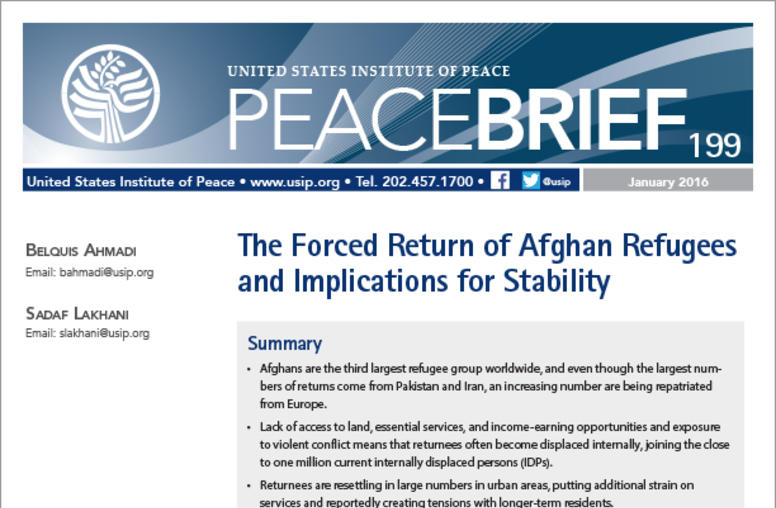
The Forced Return of Afghan Refugees and Implications for Stability
Afghan refugees have been returning home from Pakistan and Iran in growing numbers, and many of these returns have been involuntary. The situation is adding stress to an already challenging environment, characterized by insecurity, lack of access to employment and services, land and housing tensions, and rapid urbanization. This brief presents important considerations for developing a clear, well-coordinated strategy that addresses the impacts of large-scale returns and the specific needs of ...
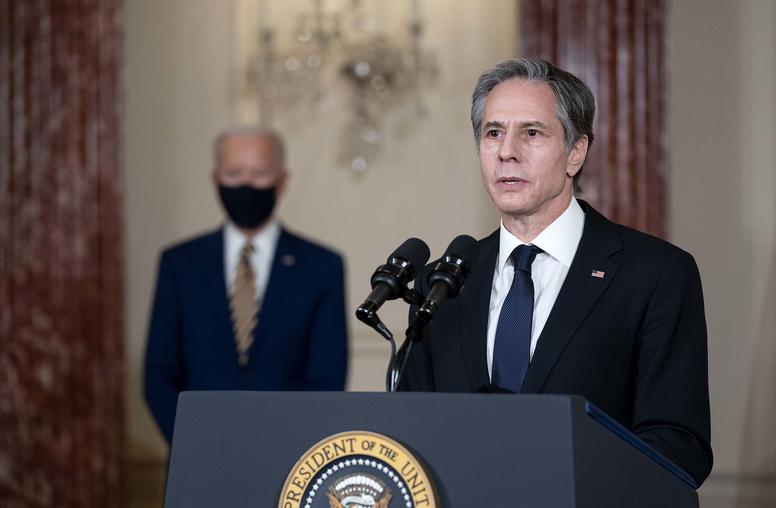
Can Blinken’s Letter Jump-start the Afghan Peace Process?
With intra-Afghan talks gridlocked and the U.S. troop withdrawal deadline looming, Secretary of State Antony Blinken proposed new plans to advance the peace process in a letter to Afghan President Ashraf Ghani. The letter recommends several efforts to “move matters more fundamentally and quickly” toward peace, including a U.N.-convened conference of key regional actors, a senior-level meeting between the Afghan government and the Taliban hosted by Turkey and a 90-day reduction in violence to head off the Taliban’s annual spring offensive. Blinken also recommended an interim power-sharing government composed of Taliban and other Afghan leaders.
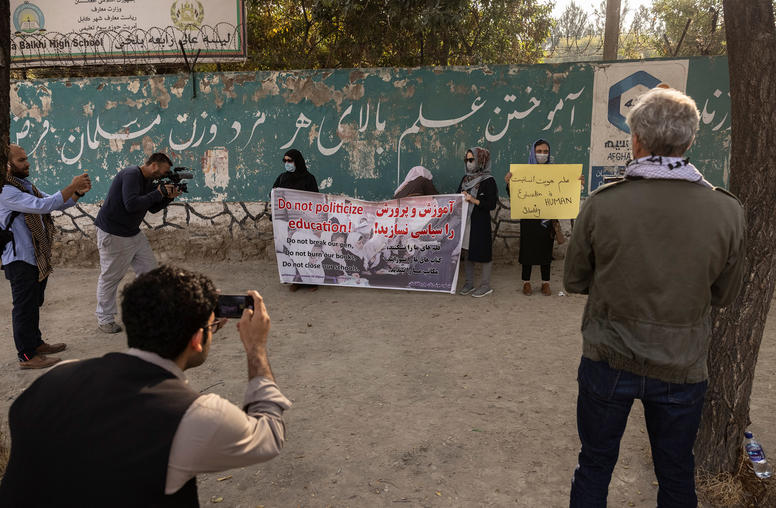
Taliban’s Ban on Girls’ Education in Afghanistan
On March 23, the first day of the school year in Afghanistan, eager female students arriving for class found closed gates and armed Taliban guards. Despite the de facto authorities’ assurances only days earlier that schools would reopen for girls above sixth grade, they had barred girls from further education.
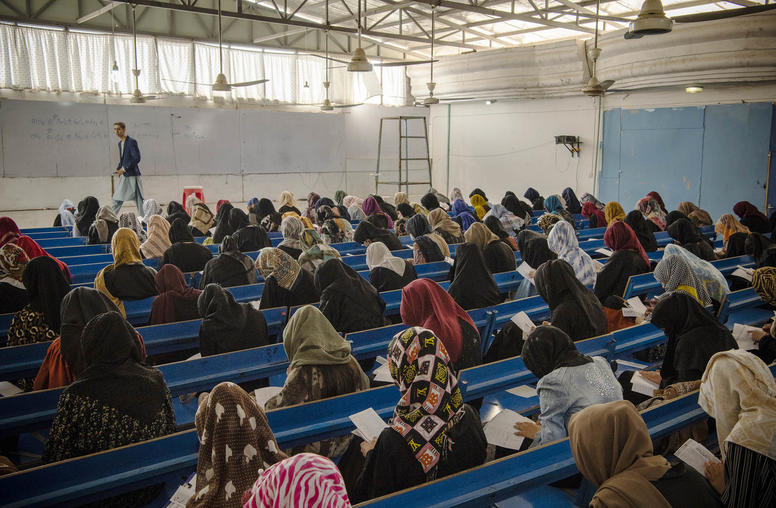
Taking a Terrible Toll: The Taliban’s Education Ban
Last month, a year after the Taliban banned Afghan girls from receiving secondary education, another school year began in Afghanistan — the only country in the world where girls are prohibited from going to school beyond the primary level. Since the Taliban’s August 2021 takeover, the group has sought to marginalize women and girls and erase them from virtually every aspect of public life. After a March 2022 ban on high school education, the Taliban also barred women from attending university at the end of last year. In a series of interviews with USIP, Afghan mothers, female students, schoolteachers, and university lecturers spoke of the terrible toll the Taliban’s actions have taken on their mental health.

Mental Health and Violent Conflict: A Vicious Cycle
When we think about the damage wrought by war, we often think about the physical consequences such as injuries and destroyed infrastructure. However, the often-invisible mental scars left behind by war are no less important.
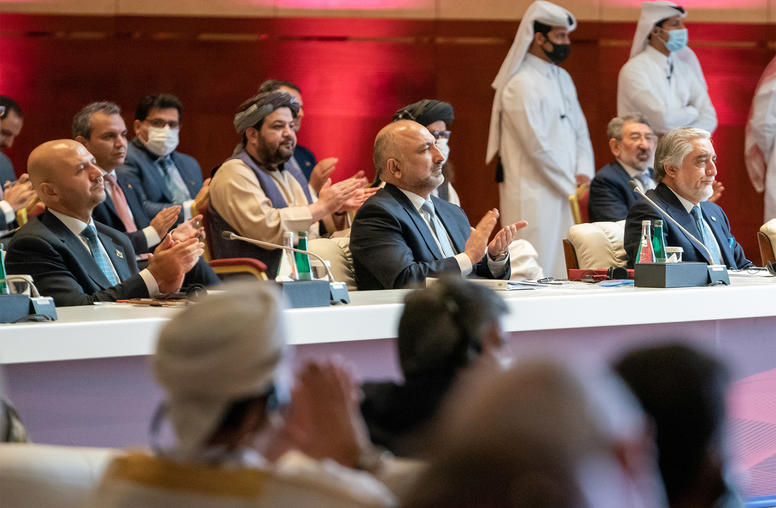
Five Things to Know About the Afghan Peace Talks
The intra-Afghan negotiations that began on Saturday represent a watershed moment in the war: the first direct, official talks between the Taliban and the Afghan government. These historic talks commenced 19 years and one day after al-Qaida's 9/11 terrorist attacks drew the United States into Afghanistan's civil war. Just getting the Afghan government and the Afghan Taliban to the table is an accomplishment. The main reason the talks materialized is the U.S.-Taliban agreement signed in February of this year; that agreement delivered a timetable for the eventual withdrawal of foreign troops, which met the Taliban’s years-long precondition for opening talks with the Afghan government.
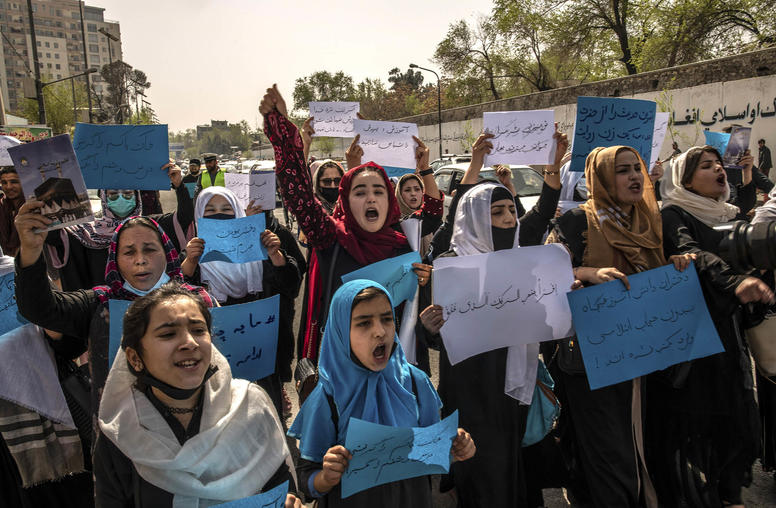
The Taliban Continue to Tighten Their Grip on Afghan Women and Girls
Since the Taliban’s August 2021 takeover of Afghanistan, they have ratcheted up restrictions on women and girls as the group consolidates power. These restrictions include limitations on employment, education, public interactions and other fundamental rights such as access to justice. These restrictions have only tightened over time with increasingly draconian enforcement — the latest being public floggings that harken back to the Taliban’s 1990s rule. Amid the U.N.’s 16 Days of Activism against Gender-Based Violence, USIP has compiled a comprehensive archive of Taliban decrees and public statements on the treatment of women and girls. While leaders and activists around the globe strategize and develop plans to address gender-based violence in their respective countries, Afghanistan stands out as a worst-case example, with two decades of hard-won progress rapidly unwinding.
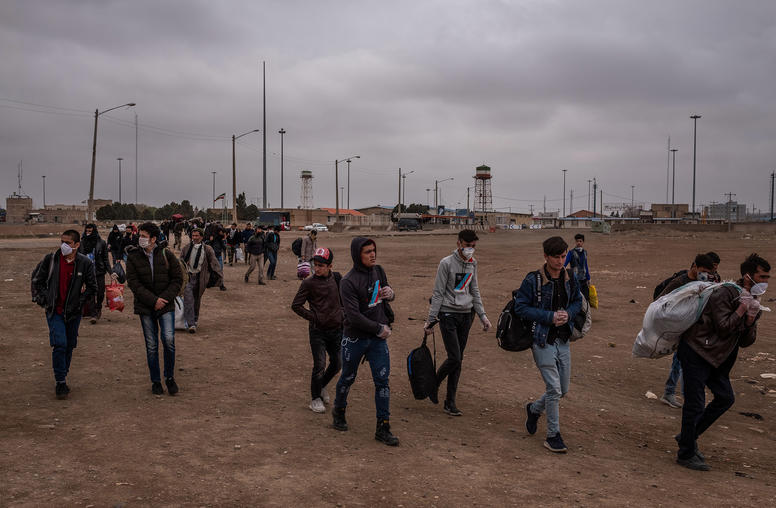
Coronavirus in Afghanistan: An Opportunity to Build Trust with the Taliban?
The COVID-19 crisis comes at a critical juncture for Afghanistan. The disputed 2019 presidential election has led to a stalemate between incumbent President Ghani and the chief executive of the last government, Abdullah Abdullah, both of whom claim the right to govern. At a time when the Afghan government should be focused on the best chance to bring peace in years, it’s distracted by a political crisis. Meanwhile, progress in the peace process has slowed since the U.S. and Taliban signed a deal in late February.
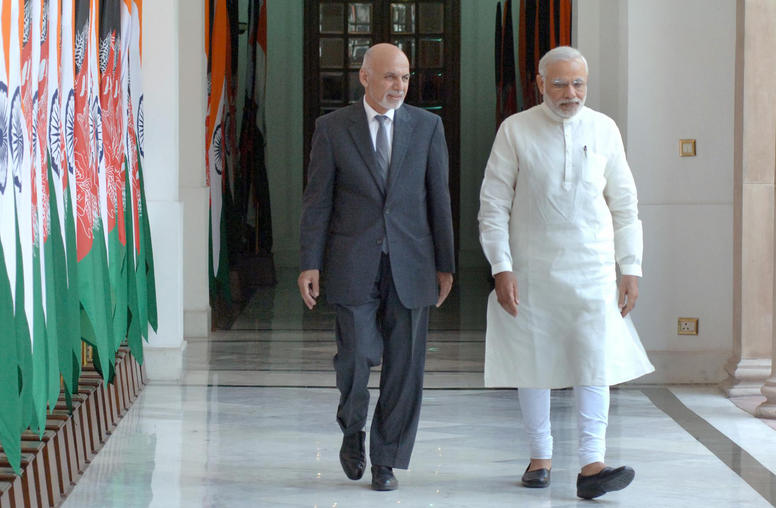
Can India Help Bring Peace to Afghanistan?
After February’s landmark U.S.-Taliban framework agreement, Afghanistan is still trying to initiate the next steps of their peace process, including intra-Afghan talks and prisoner exchanges. The country’s regional neighbors will be critical to the success or failure of the proposed talks. And while most attention naturally goes to Pakistan, with some focus also given to Iran and China, U.S. Special Representative Zalmay Khalilzad has made clear that India also has a vital role to play.
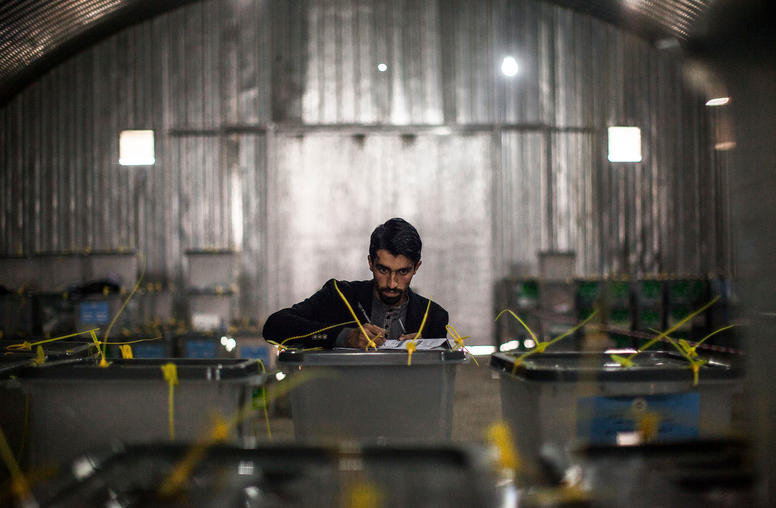
Afghanistan’s Parliamentary Vote: A Canary in the Presidential Poll Mine
There is a palpable sense of anticipation in Kabul days before parliamentary elections will be held. Blast walls, billboards and powerline poles are plastered with the campaign posters of the hopeful candidates. With 800 candidates competing for 33 seats in Kabul, winning a seat in the province will be challenge. The possibility of successful electoral process nationally is equally daunting, however, as poor security, delayed preparations and the last-minute introduction of electronic voter verification machines (in a country with spotty electricity) make pulling off a credible vote a real gamble.